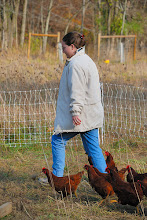Spin, by Robert Charles Wilson (no spoilers)
I just finished reading Spin, by Robert Charles Wilson , a science fiction novel. Here is the beginning of the publisher's description:
, a science fiction novel. Here is the beginning of the publisher's description:
One night in October when he was ten years old, Tyler Dupree stood in his back yard and watched the stars go out. They all flared into brilliance at once, then disappeared, replaced by a flat, empty black barrier. He and his best friends, Jason and Diane Lawton, had seen what became known as the Big Blackout. It would shape their lives.
I first saw this book when it was reviewed by John Joseph Adams at The Slush God Speaketh. I was thoroughly hooked just by the blurb!
For the most part this book was wonderful, although it suffered from a weak ending. It is in first person, with about a third of the book devoted to the current action and two-thirds devoted to backstory. There is a plausible reason for this: at the beginning of the book, Tyler takes a drug that has one side-effect of graphomania, or a strong desire to write.
Unfortunately, the back story is far more interesting than the current action. This leads the reader to expect that at the end of the book we would discover who the aliens were and what they wanted, and that would be the climax. But really, the forestory (I don't know if that's a word, but I'm going to use it) is about Tyler and Diane trying to escape Earth because the United States Government is after them. The only problem is, we don't discover that until around three-quarters through the forestory (and almost finished with the book). I think that if that information had been shared at the beginning then the ending would have been more satisfying. Since the author wouldn't tell what the point of the story was, I had to guess. The backstory got far more words, so it was natural that I would guess that the end of the book would answer the questions, "Who are these aliens? What do they want?"
However, even with that flaw, Wilson pulls off a darn good story. The characters are interesting and believable.
A warning: there is occasional profanity in the dialogue. It's not overwhelming but it is there. Also, characters engage in casual sex several times in the book, although none of it is graphicly described. Some of Orson Scott Card's writing is racier than what you will find in Spin.
One night in October when he was ten years old, Tyler Dupree stood in his back yard and watched the stars go out. They all flared into brilliance at once, then disappeared, replaced by a flat, empty black barrier. He and his best friends, Jason and Diane Lawton, had seen what became known as the Big Blackout. It would shape their lives.
I first saw this book when it was reviewed by John Joseph Adams at The Slush God Speaketh. I was thoroughly hooked just by the blurb!
For the most part this book was wonderful, although it suffered from a weak ending. It is in first person, with about a third of the book devoted to the current action and two-thirds devoted to backstory. There is a plausible reason for this: at the beginning of the book, Tyler takes a drug that has one side-effect of graphomania, or a strong desire to write.
Unfortunately, the back story is far more interesting than the current action. This leads the reader to expect that at the end of the book we would discover who the aliens were and what they wanted, and that would be the climax. But really, the forestory (I don't know if that's a word, but I'm going to use it) is about Tyler and Diane trying to escape Earth because the United States Government is after them. The only problem is, we don't discover that until around three-quarters through the forestory (and almost finished with the book). I think that if that information had been shared at the beginning then the ending would have been more satisfying. Since the author wouldn't tell what the point of the story was, I had to guess. The backstory got far more words, so it was natural that I would guess that the end of the book would answer the questions, "Who are these aliens? What do they want?"
However, even with that flaw, Wilson pulls off a darn good story. The characters are interesting and believable.
A warning: there is occasional profanity in the dialogue. It's not overwhelming but it is there. Also, characters engage in casual sex several times in the book, although none of it is graphicly described. Some of Orson Scott Card's writing is racier than what you will find in Spin.


0 Comments:
Post a Comment
<< Home